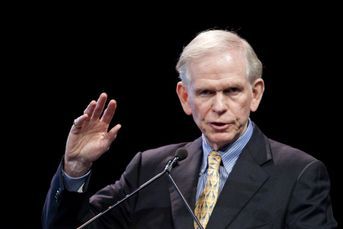Investors shift record amounts from U.S. stocks to bonds
Investors shifted record amounts out of U.S. stock funds and into bonds, while withdrawing money from emerging-market equities for a 15th straight week
Investors shifted record amounts out of U.S. stock funds and into bonds, while withdrawing money from emerging-market equities for a 15th straight week, according to Citigroup Inc.
U.S. equity funds had $24 billion of outflows in the week to Feb. 5, according to a report Friday from the research unit of the third-largest U.S. bank. Withdrawals from stock funds worldwide totaled $28.3 billion, the report said, citing data from EPFR Global, a fund research company in Cambridge, Mass. Money managers plowed $13 billion into U.S. bond funds, accounting for most of the $14.8 billion that flowed into debt worldwide. All the figures for the period are record highs.
Bonds beat stocks last month for the first time since August as a slowdown in U.S. jobs growth and turmoil in emerging markets from China to Argentina drove demand for the safest securities. The Federal Reserve’s decision to taper its bond purchases in January and again in February did more to temper the appeal of high-risk assets than reduce demand for U.S. debt.
‘SAFE HAVENS’
“Recent figures spooked people into thinking global growth is not as good as expected, so they sold off on equities and went into safe havens,” said Daphne Roth, the Singapore-based head of Asian equity research at ABN Amro Private Banking, which oversees about $207 billion. Ms. Roth sold stocks in late January and is holding the money in cash, she said.
Investors pulled $6.4 billion out of emerging-market equity funds in the period, according to the report by Markus Rosgen and Yue Hin Pong in Hong Kong. It was the biggest outflow since August 2010, the report said.
Bill Gross, who oversees the world’s biggest bond fund at Pacific Investment Management Co., said this week the pace of economic growth in China is among the biggest questions in developing nations and the largest risks for markets.
“We’re just going to have to wonder going forward through this year as to the potential problems in China and other emerging markets,” he said on Bloomberg Television.
The Bank of America Merrill Lynch Global Broad Market Index returned 1.6% in January, including reinvested interest, while the MSCI All-Country World Index of stocks lost 4%.
Investors snapped up bonds after the U.S. reported Jan. 10 that payrolls rose by 74,000 in December, less than the 197,000 median forecast of economists surveyed by Bloomberg News. The report for January scheduled for Friday will probably show a gain of 180,000, based on responses from economists.
A Bloomberg customized gauge tracking 20 developing-nation currencies fell 3.1% in January and has rebounded 0.8% this month.
Fed policy makers cut their purchases of Treasury and mortgage debt in two steps to $65 billion a month from $85 billion, citing improvement in the outlook for the labor market.
(Bloomberg News)
Learn more about reprints and licensing for this article.








